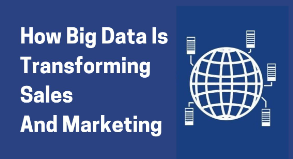
Big Data refers to the enormous amount of data generated every second from online interactions, social media posts, purchases, and more. It’s like having a treasure trove of information right at your fingertips. This data isn’t just numbers and figures. How big data is transforming marketing strategies, it’s actionable insights that can transform how businesses understand and engage with their audience.
So, why does Big Data matter so much in marketing today? Well, in a nutshell, it helps marketers personalize their approach, predict trends, and make smarter decisions—all based on real-time information. It’s no wonder that companies of all sizes are harnessing the power of Big Data to stay ahead in the competitive marketing landscape.
In this article, we’ll dive into how Big Data is reshaping marketing strategies, explore real-world examples, discuss challenges, and peek into future trends. Get ready to see how data isn’t just big—it’s the future of marketing.
Impact of Big Data on Marketing Strategies
Personalization and Targeting
One of the biggest advantages of Big Data in marketing is its ability to personalize customer experiences like never before. By analyzing vast amounts of data, marketers can create highly targeted campaigns that resonate with individual preferences and behaviors. Whether it’s recommending products based on past purchases or tailoring email content to specific demographics. Personalization boosts engagement how big data is transforming marketing strategies and builds stronger customer relationships.
Imagine logging into your favorite online store and seeing recommendations that feel like they were handpicked just for you. That’s the power of Big Data at work—making every interaction feel personal and relevant.
Predictive Analytics for Customer Insights
Predictive analytics takes Big Data to the next level by forecasting future trends and behaviors based on historical data patterns. Marketers can use predictive models to anticipate customer needs, optimize pricing strategies, and even predict the likelihood of churn. It’s like having a crystal ball that helps businesses stay one step ahead of their competitors.
Real-time Decision Making
In today’s fast-paced digital world, speed is everything. Big Data enables real-time decision-making by providing instant insights into customer behavior and market trends. Whether it’s adjusting ad campaigns on the fly or responding to customer inquiries in real-time. Businesses can make agile decisions that drive immediate results. Think of it as navigating through traffic with a GPS that updates in real-time. Helping you avoid traffic jams and get to your destination faster. Big Data empowers marketers to navigate the ever-changing landscape with agility and precision.
Enhanced Customer Engagement
At the heart of every successful marketing strategy lies customer engagement. Big Data helps businesses foster deeper connections with their audience by understanding what makes them tick. By analyzing social media interactions, website clicks, and purchase history. Marketers can craft personalized messages and offers that resonate with their customers’ interests and preferences.
Imagine receiving an email from your favorite brand with a special offer on a product you’ve been eyeing for weeks. It’s not just a coincidence. Big Data working behind the scenes to deliver a tailored experience that delights customers and drives conversions. Now that we’ve explored how Big Data is transforming marketing strategies. Let’s delve into real-life examples of its application in the marketing world. These case studies will showcase how leading companies are leveraging Big Data to stay ahead of the curve.
Future Trends in Big Data and Marketing
Alright, let’s take a sneak peek into the future of Big Data and how it’s set to reshape marketing strategies in the years to come.
Artificial Intelligence and Machine Learning
Get ready for AI-powered marketing! Artificial Intelligence (AI) and Machine Learning (ML) are poised to revolutionize how marketers analyze data, automate processes, and deliver hyper-personalized experiences at scale. From chatbots that engage customers in real-time to predictive analytics that anticipate consumer behavior. AI will be the driving force behind smarter marketing decisions.
IoT and Data Integration
The Internet of Things (IoT) is expanding the realm of Big Data by connecting everyday devices to the internet, generating vast streams of real-time data. Marketers can harness IoT data to gain insights into consumer behavior in physical spaces. Personalize experiences based on location, and even optimize supply chain management. Imagine retail stores using IoT sensors to track foot traffic patterns and adjust store layouts in real-time for maximum efficiency.
Ethical Use of Consumer Data
As consumers become more aware of data privacy issues, ethical considerations around data usage will play a crucial role in shaping future marketing strategies. Marketers will need to prioritize transparency, consent, and responsible data practices to build trust and maintain positive relationships with customers. This shift towards ethical data use is not just a trend but a fundamental principle that will define the future of marketing in an increasingly data-driven world. By staying ahead of these trends and embracing innovation responsibly. Marketers can leverage Big Data to create meaningful experiences, drive business growth, and stay competitive in a rapidly evolving marketplace.
Conclusion
Big Data is reshaping marketing strategies. From personalized recommendations to predictive analytics and ethical data use, it’s clear that Big Data isn’t just a trend—it’s a game-changer for marketers worldwide. Big Data empowers businesses to understand their customers on a deeper level, anticipate their needs, and deliver experiences that truly resonate. By leveraging advanced analytics, AI-driven insights, and real-time decision-making, marketers can stay agile in a competitive landscape and drive meaningful engagement with their audience.
Read More :